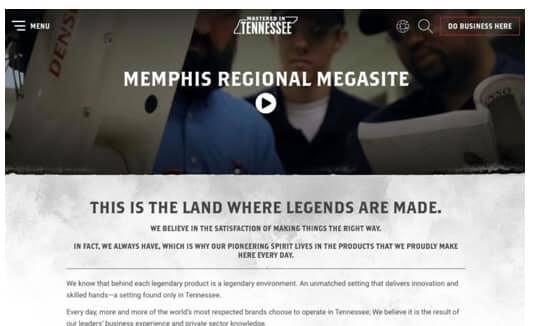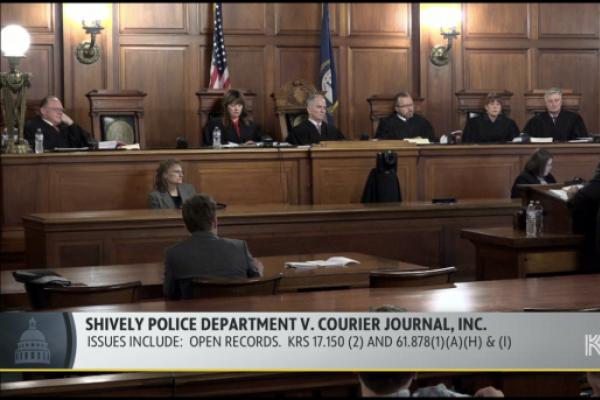
From the Tennessee Coalition for Open Government
New megasite authority could operate with secrecy under proposed bill
By Deborah Fisher
October 18, 2021
"The proposed bill that would create the Megasite Authority of West Tennessee with an initial $844 million appropriation and with the power to deliver a half-billion dollar grant to Ford Motor Co. offers another coveted power: megasecrecy.
"While the bill states that the authority would adopt as its official policy 'the principle of open records,' it is filled with exemptions that undermine open government.
"A screenshot from the state's webpage about the West Tennessee megasite for economic development.
"The authority is designed to promote economic development on the 'megasite' state land in Haywood and Fayette counties and in surrounding areas. The development can include anything from manufacturing to workforce housing to recreational activities.
"It would have a board of directors appointed by state leaders, mostly by the governor.
"But when it comes to the contracts it executes — including the deals it does with private companies — will those be public? Will other records of this powerful new megasite authority be open to public inspection?
"Maybe so, maybe not.
"The bill devised by the governor's administration would create law restricting the public's ability to inspect any contract or agreement — such as one that might show the terms of the state's grant to the private business — until after the agreement is signed.
"Normally, when a governing body has to approve a contract, the details of such a contract are public before the vote. That would not be the case here. The authority's board of directors would be subject to the open meetings law, but the proposed law creates a situation in which its members could be voting 'yes' on deals that the public can't see.
"The proposed bill goes a step further and says that even if the contract is signed, the megasite authority's CEO can make a determination to keep the contract confidential if he or she decides that the record — or any part of the record — 'is of such a sensitive nature that the record's disclosure would seriously harm the ability of the authority' to do its job. This part of the proposed bill applies to all public records of the authority, not just contracts.
"The CEO has to get an 'affirmative agreement' from the attorney general to keep its records confidential. But other than that, the path to close down access to say, a contract or terms of the contract with a private company that received a $500 million grant, would be quite simple.
"If the CEO decides to keep any of the megasite authority's otherwise public records confidential, the bill proposes that eventually, five years later, the records must become open to public inspection. That's a whole lot of time to hide stuff you don't want the public to know about. The discretionary power of the CEO to keep public records confidential should be struck from the bill.
"Finally, the bill contains a broad definition of what businesses can claim as proprietary and not subject to public disclosure. For example, it could include financial information that is part of the deal itself, thus causing another roadblock to the people of Tennessee to scrutinize the spending of taxpayer dollars when it involves giving money to a company for economic development.
"These exemptions are anathema to those who support open government and public oversight that open government brings to government actions.
"This oversight is especially important when large amounts of taxpayer money are involved.
"While bringing Ford Motor Co. to Tennessee may be a game-changer for economic stimulus in the western part of our state, we don't need it to be a game-changer for transparency in government. We don't need a whole new branch of government that can operate without public scrutiny.
"To read the bills creating the megasite authority and appropriating nearly $844 million for roads, operations, site work, consulting services and a $500 million grant to Ford, see House Bill 8001 and House Bill 8002. The Senate versions have not yet been filed. The appropriations bill also would appropriate another $40 million to create a college of applied technology at the site.



